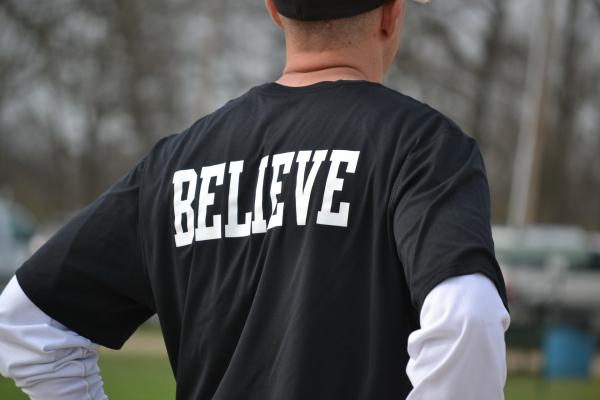
I will often be out in the community at an event and hear someone bring into the room a question about false reports in regards to sexual assault cases. There is a lot of conversation in the community about how most reports are false and that something has to be done to get to the truth of what has happened and protect men from the possibility of prosecution for something that they did not do. In those moments, I try to hear that reality and learn more about what that person is saying. Not only the incident that they are bringing into the room, but also the belief behind what they are sharing.
I think as a society we struggle to believe women. It always strikes me that when a young man comes forward about an incident of sexual abuse or violence that he experienced at the hands of a trusted adult in his life, we believe them. An excellent example of this are the sexual abuse cases that have plagued the Catholic Church. There is not a narrative about why that young man did not come forward ten, twenty, or thirty years ago. Most accept what is reported at face value and commend the young man for his bravery and willingness to share his experience. There is no talk about a victim's behavior like we see with women and girls. We do not talk about whether young men were dressed provocatively, engaged in alcohol/drug use, went to someone's room, spent time alone with someone, or led them on. There is a tacit understanding of consent, coercive behavior, and the power dynamics in those relationships.
In the cases of young boys, we easily understand how nuanced these cases are and how adults often hold power over children. Why do we ignore the presence of power and control in relationships involving women and girls? We understand the shame and guilt that a male survivor may feel and why they would wait to come forward and share their experience. There is no hand-wringing about how they should have gone to the police, told their parents, school officials, or a trusted adult. In a sense, we see the forest through the trees. We know that sexual violence is a complicated crime, but we do not spend our time arguing the guilt or innocence of the perpetrator in the cases when young men are victims like many do with women and girls. It is as though, at that moment, we realize our job is to be supportive when a man discloses about sexual abuse that he experienced as a boy. No one questions his motives or whether he is telling the truth. No one says that he is out for fame, being vindictive, or trying to get back at someone who spurned his advances. No one says that because all of those statements are ridiculous.
Yet, some of us do any or all of these things when women and girls come forward. Some of us question them like we are investigators on SVU or cross-examining folks on the witness stand. Many of us think our job is to be judge and suss out guilt, innocence, or truth. Why is that? Why do so many of us struggle to believe women? At the end of the day, why do so many of us not accept what is reported at face value and commend women and girls for their bravery and willingness to share their experience with sexual assault like we do for men?



